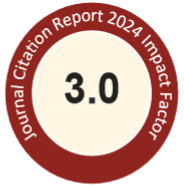Abstract
Methamphetamine is a highly addictive psychostimulant with tens of millions of abusers around the world. There is no effective or approved medication for treating an addiction to it. Monoclonal antibodies with a high affinity for methamphetamine have the potential to sequester the drug in the vascular compartment and reduce entry into the brain, thereby acting as peripheral pharmacokinetic antagonists without inducing adverse effects on neurons. However, to maintain the antibodies at an effective level, repeated administration is required, which would be expensive and problematic for patient compliance. In this study, we intended to investigate whether using a recombinant adeno-associated virusmediated gene transfer technique can be an effective approach to achieve long-term expression of anti-methamphetamine monoclonal antibodies in mouse models. We generated a recombinant adeno-associated virus vector encoding the heavy and light chains of an anti-methamphetamine monoclonal antibody, which was constructed in a single open reading frame and linked with a 2A self-processing sequence. In the context of virus-mediated gene transfer, the expression of full-length and functional monoclonal antibodies was successfully demonstrated in vitro and in vivo. Further investigations are ongoing concerning dose optimization, longterm expression, and protection from methamphetamine challenge in mouse models. Copyright © 2013, Food and Drug Administration, Taiwan.
ScienceDirect Link
Recommended Citation
Chen, Y.-H.; Wu, K.-L.; Tsai, H.-M.; and Chen, C.-H.
(2013)
"Treatment of methamphetamine abuse: An antibody-based immunotherapy approach,"
Journal of Food and Drug Analysis: Vol. 21
:
Iss.
4
, Article 49.
Available at: https://doi.org/10.1016/j.jfda.2013.09.040
Creative Commons License

This work is licensed under a Creative Commons Attribution-Noncommercial-No Derivative Works 4.0 License.
Fulltext URL
https://www.sciencedirect.com/science/article/pii/S102194981300104X/pdfft?md5=6715ee7b1e342ff3f20f2da725337713&pid=1-s2.0-S102194981300104X-main.pdf
Included in
Food Science Commons, Medicinal Chemistry and Pharmaceutics Commons, Pharmacology Commons, Toxicology Commons

